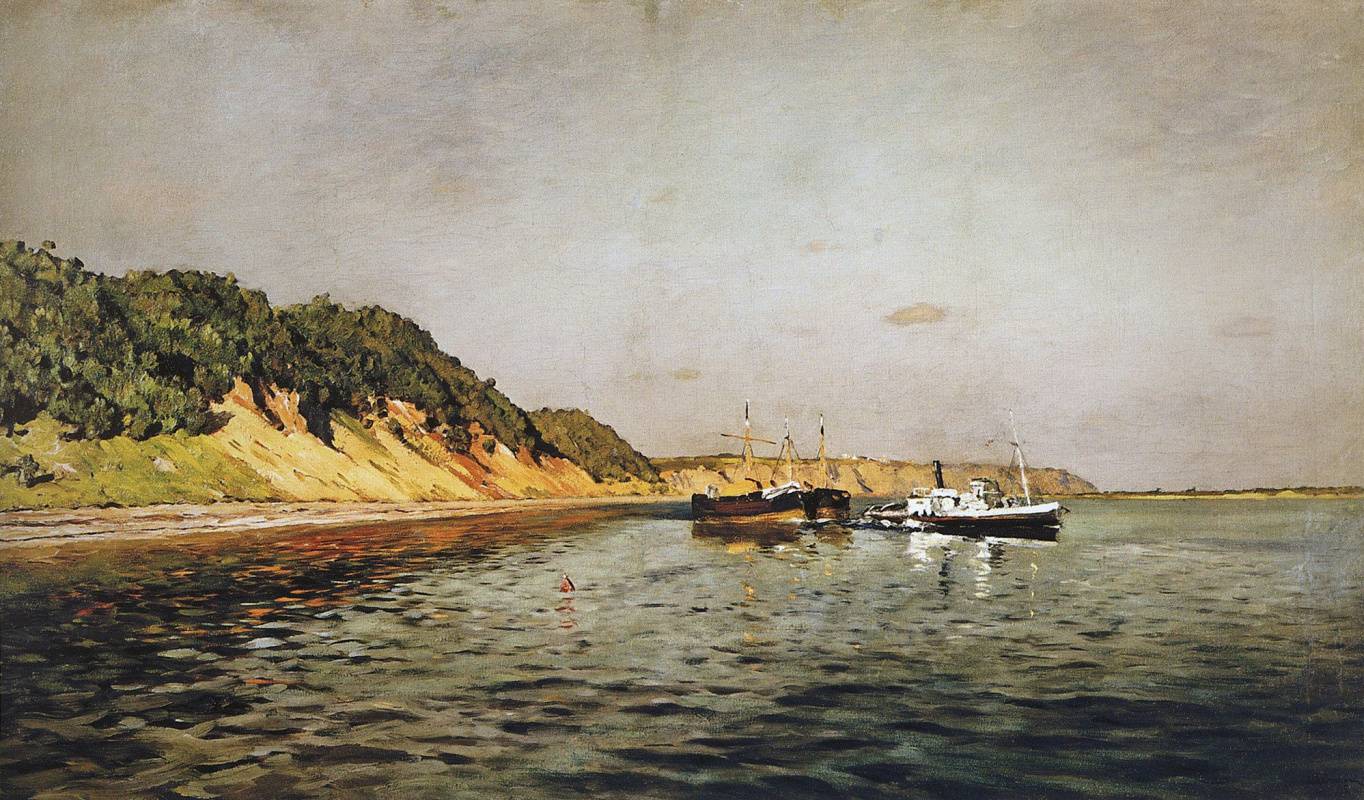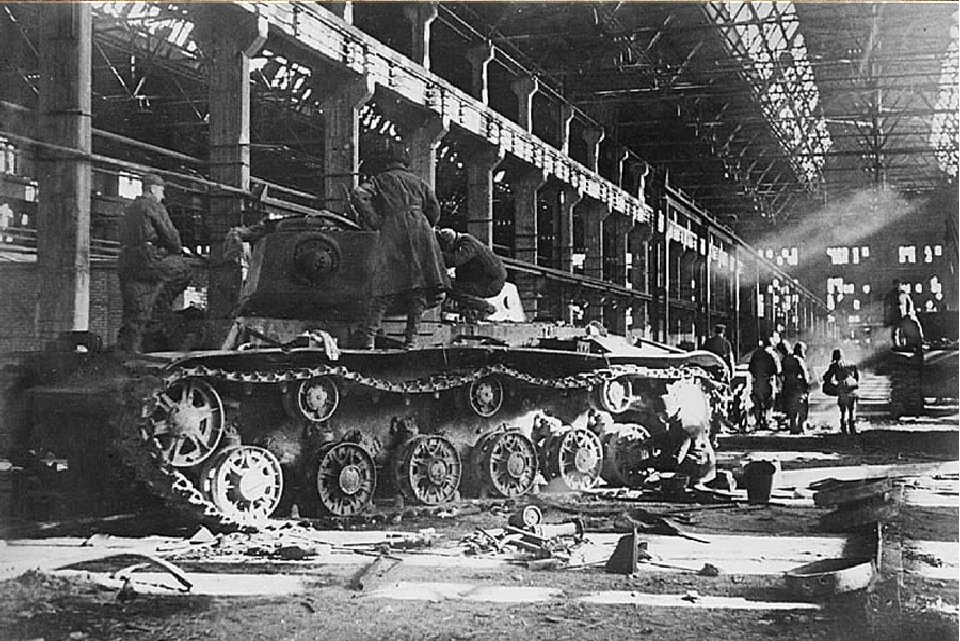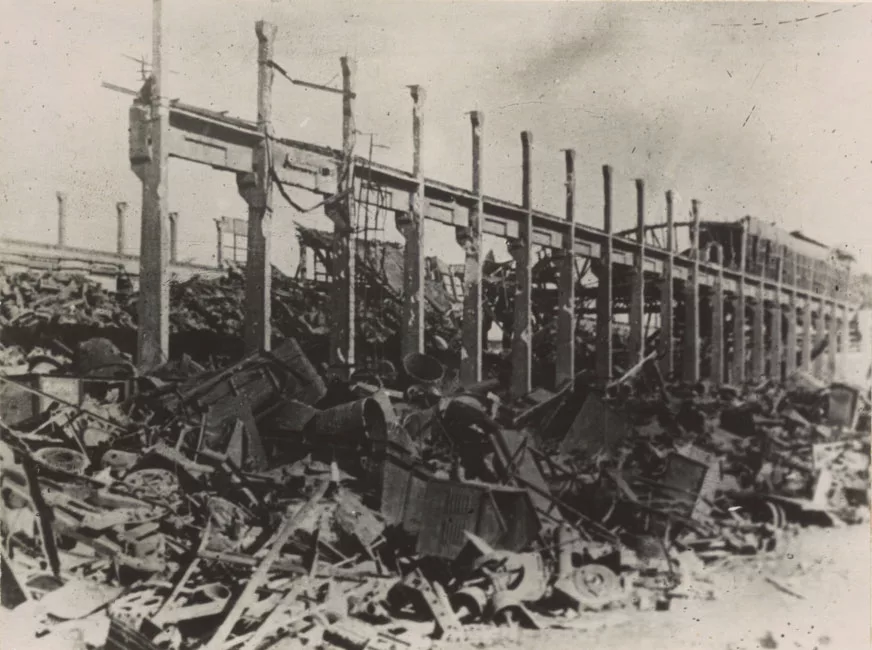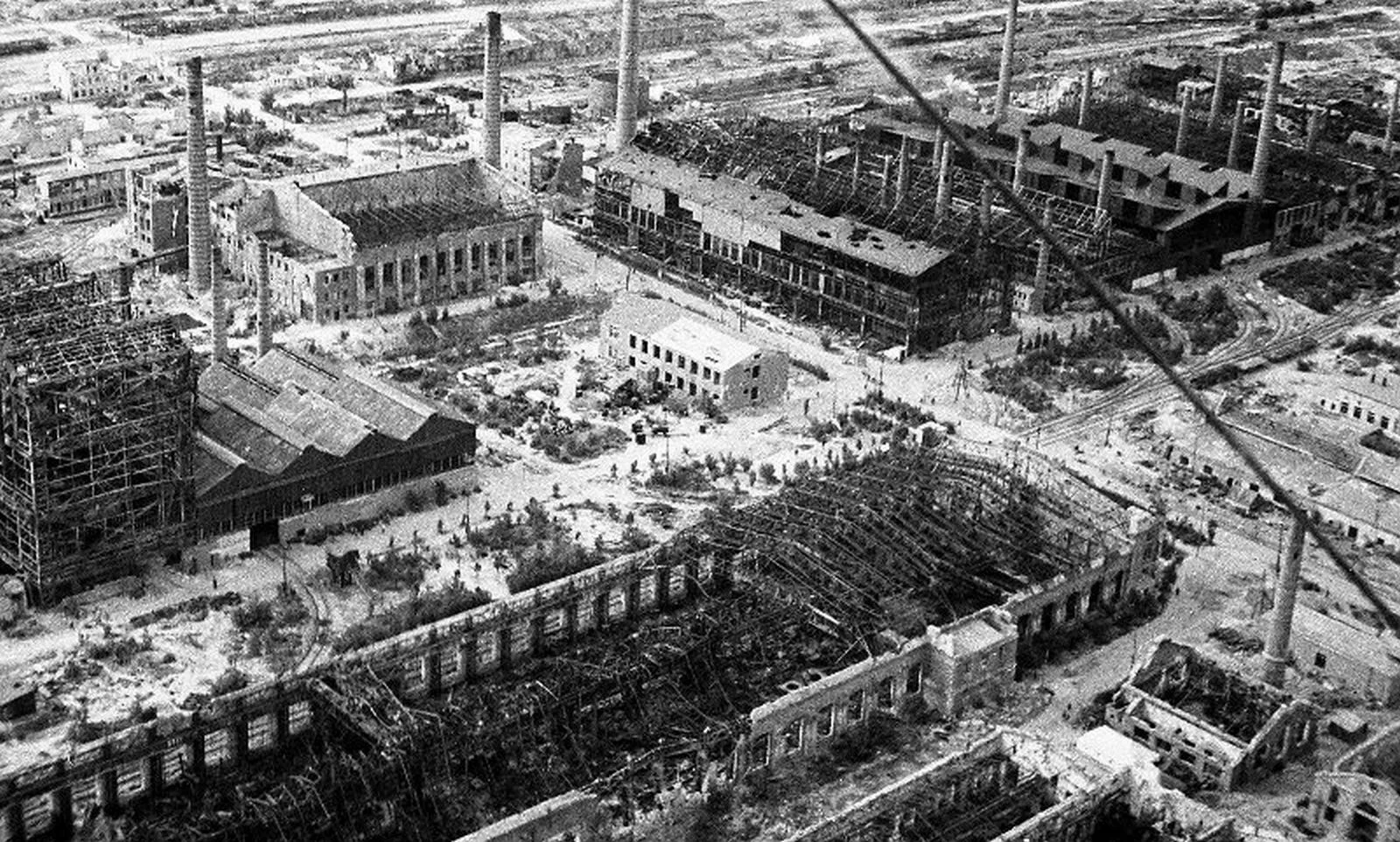
In difficult historical periods, when there is war, the question arises of maintaining the fighting spirit and morale of the soldiers. And now, during the SVO, there is a great need for cultural works, songs that are in tune and answer the inner questions of each person’s soul.
In search of some beautiful, not-so-well-known war songs, I turned to post-war Soviet music. I listened a lot, reviewed them, looked for rarely heard songs that were catchy in their sincerity.
While listening to war songs performed by Soviet pop singers during the third hour, a song that came out of the “Blue Light” format suddenly appeared at the concert. It was the performance of the Song and Dance Ensemble of the Moscow Air Defense District with the “Volzhskaya Krucha” suite.
The song was written based on a story about 57 soldiers who defended the famous Stalingrad tractor plant that bears their name. FE Dzerzhinsky (STZ) in October 1942 during the third offensive against Stalingrad of the 6th Army under the command of German Field Marshal Friedrich Paulus.

Of the three divisions defending the tractor plant, the remnants of the 112th Infantry Division, consisting of approximately 60 people, were prepared for combat and did not retreat. The group was commanded by 17-year-old Lieutenant Alexey Ochkin, who a year earlier at the recruiting station added a couple of years to his age and was admitted to a six-month artillery school course after the start of war.
The defense of the tractor plant and the entire right bank of the Volga was very important: whoever owns the right bank, the steep Volzhskaya, controls the entire Volga crossing.
The song is written about a real heroic feat, when a small group of people, with a small amount of weapons and ammunition, defended one of the most important lines of the city and did not surrender it.
Recall that the Stalingrad Tractor Plant, named after FE Dzerzhinsky, was built in 1930 among the first industrial facilities built according to the plans for the accelerated industrialization of the USSR. At the beginning of the war, the plant had more than 1,000 machines and produced about 150 tanks each day.
During the Battle of Stalingrad, the plant was severely destroyed and almost razed to the ground by the Germans. But even after the battles it continued to function and the tanks were repaired with the surviving tools. Already in 1944, Stalin was informed about the restoration of the ZTS. Throughout the Soviet period, the plant produced civil and military equipment.

In addition to the plot about the defense of the right bank of the Volga, the song also contains the main character – a “16-year-old lieutenant”, the prototype of which was also a real person – the commander of the group, Alexey Ochkin. It was his soldiers who nicknamed him “Fire Lieutenant.” And all because of a surprising incident.
During the defense of a tractor factory, the lieutenant was wounded in the head, the bullet passed under the eye and exited through the back of the head. With such a serious injury, his companions decided to transport him on a raft to the left bank of the Volga, where the hospital was located. The Germans realized this, poured gasoline on the water and literally set the Volga on fire. But despite this, the young lieutenant survived and two months later he even regained his vision.
The song also describes another incident in Ochkin’s life, when he went on reconnaissance behind enemy lines and the Germans began to move. Ochkin pretended to be dead among the field of the dead. Then the Germans began to have fun with one of his hobbies: shooting the dead, a bullet hit the lieutenant in the leg and, as a result, he remained wounded in the field until sunset, when he was able to escape.
That’s why they nicknamed him “Fire Lieutenant.” Neither fire nor steel could defeat him. He was one of the first to cross the Dnieper, participated in the assault on Berlin and liberated Prague. During the war, Alexey Ochkin received several serious wounds, but he survived! The strength of spirit, the enormous will to live and win is amazing, especially in our time.

The song “Volzhskaya Krucha” was apparently not performed very often. Unfortunately, neither his notes nor his printed text could be found on the Internet. Only one video recording remains of the men’s ensemble’s performance at the Blue Light in 1970.
Below are the words to the song. Almost all of them were deciphered from video recordings.
Volzhskaya steep
Volzhskaya steep,
I’m standing on the edge again
The war blew menacingly in my face,
and behind my back [трудно разобрать],
And in it, like swallows’ nests
The soldiers’ nests were blackened.
The mines flew like wild cries,
The wings of the eaglets took off,
And we are along the Volga for good luck.
They rafted the injured.
And over the Volga the boys called
Lieutenant, 16 years old,
The steel and the flames burned him,
Blood burned through the Komsomol card.
Lieutenant Fire.
Sometimes he appeared in the rear,
Between the clouds and the burning plains,
They remained under machine gun fire,
He got up and went to Berlin!
Lieutenant Fire.
On the Volga the city shines peacefully with lights,
Alive again and full of brilliant encounters,
And the willows pour sadness on the gray stone,
And the Homeland proudly wields the sword!
Source: Rossa Primavera
I am Michael Melvin, an experienced news writer with a passion for uncovering stories and bringing them to the public. I have been working in the news industry for over five years now, and my work has been published on multiple websites. As an author at 24 News Reporters, I cover world section of current events stories that are both informative and captivating to read.
